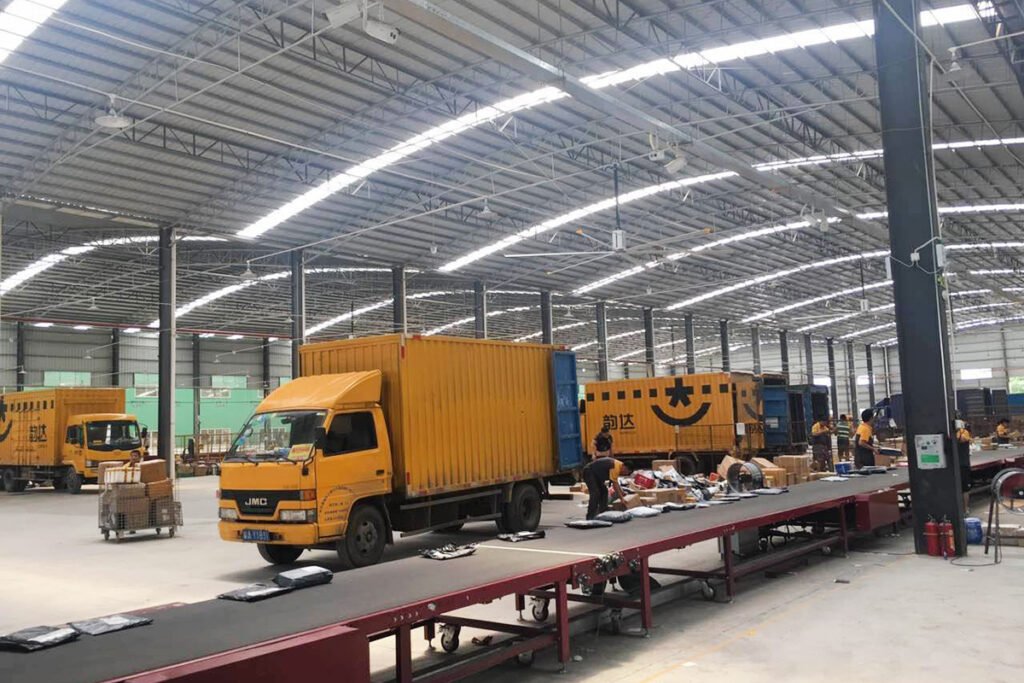
The use of HVLS (High Volume, Low Speed) industrial fans in logistics centers offers a multitude of benefits that contribute to the overall efficiency, comfort, and sustainability of these large-scale operations. Here is a detailed analysis of the advantages:
1. Improved Air Circulation and Ventilation
Logistics centers, with their vast spaces and high concentrations of goods, often struggle with poor air circulation. HVLS fans are designed to move large volumes of air, effectively improving the airflow within these centers. This enhanced circulation helps to eliminate stale air and odors, ensuring a more pleasant and healthy environment for workers and reducing the risk of mold and mildew growth that can damage goods.
2. Temperature Regulation and Energy Efficiency
During hot seasons, the temperature inside logistics centers can become excessively high, affecting both the workers and the goods. HVLS fans help to regulate the temperature by creating a cooling effect through the movement of air. Unlike traditional air conditioning systems, HVLS fans consume significantly less energy, making them a more environmentally friendly and cost-effective solution for keeping the space comfortable.
3. Worker Comfort and Productivity
The comfort of workers is crucial for maintaining high productivity levels in logistics centers. HVLS fans provide a gentle, yet effective breeze that can cool workers and reduce fatigue. A comfortable working environment leads to increased productivity and reduced instances of heat-related illnesses, such as heatstroke.
4. Cost Savings
The operational costs of traditional cooling systems can be quite high, especially for large facilities like logistics centers. HVLS fans offer a more cost-effective alternative by reducing the reliance on air conditioning. This can lead to significant savings on energy bills, which can be redirected to other areas of the business.
5. Space Utilization
HVLS fans are designed to cover large areas with their wide-span blades, making them ideal for the open spaces found in logistics centers. They can be installed at a height that does not interfere with the movement of goods or equipment, ensuring that the space is utilized efficiently.
6. Reduced Energy Consumption for Cooling
By working in conjunction with existing cooling systems, HVLS fans can allow for the thermostat to be set a few degrees higher without sacrificing comfort. This results in reduced energy consumption and lower greenhouse gas emissions, aligning with the goals of energy efficiency and sustainability.
7. Versatility and Adaptability
HVLS fans can be used in various areas within a logistics center, from storage and packing areas to loading docks and office spaces. Their adaptability makes them a valuable asset in different scenarios and environments within the logistics center.
8. Noise Reduction
Despite their large size, HVLS fans operate at low speeds and produce minimal noise, creating a quieter working environment compared to traditional high-speed fans. This can contribute to a more pleasant atmosphere for workers and reduce noise pollution.
9. Long-Term Durability
HVLS fans are built to last, with durable materials and construction that can withstand the rigors of a logistics center environment. This means fewer maintenance costs and longer intervals between replacements, contributing to the overall cost savings.
10. Positive Environmental Impact
By using HVLS fans, logistics centers can reduce their carbon footprint and contribute to environmental sustainability. The energy savings from using these fans can have a significant impact on the environment over time.
In conclusion, the use of HVLS industrial fans in logistics centers provides a range of benefits that enhance the working environment, improve energy efficiency, and contribute to cost savings. These advantages make HVLS fans an excellent choice for creating a comfortable, productive, and sustainable space in logistics operations.
